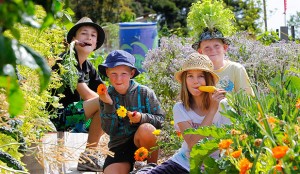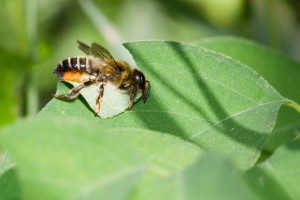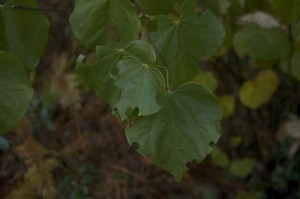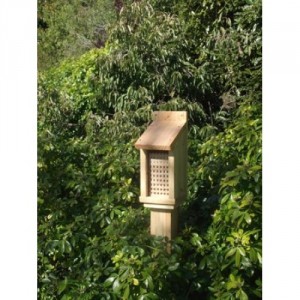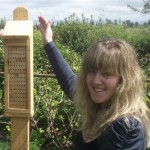Creative Woodcraft is a family run New Zealand business hand-crafting beautiful wildlife habitat, bird feeders and nesting boxes and other great garden products!
Creative Woodcraft is passionate about the future of bees in New Zealand and has teamed up with NZ pollination expert Dr Barry Donovan, of Donovan Scientific Insect Research in Lincoln, who has more than 50 years’ experience in the industry.
There is currently a great deal of attention focused on the future protection of honey bees throughout New Zealand, and quite rightly so. However let us not forget about the many other equally important pollinators out there, such as bumble bee’s and the numerous species of native solitary bee’s, which provide a huge impact on the success of our fruit and vegetables gardens, increasing pollination and in turn providing us with much greater yields.
Creative Woodcraft offers a proven solution to help gardener’s encourage native bees and help them to pollinate in their own backyard. At Creative Woodcraft you can purchase a solitary bee house and Leafcutter Bee Cells and have your pollinators ready for the warmer weather!
Pollinator friendly gardening
Whether pollinator-friendly gardening sounds daunting or adventurous, it is in reality quite a simple and do-able task. By making an urban garden, regardless of its size, a welcoming place for insects and animals, you are helping to preserve essential pollinators, which in turn will help to make any garden thrive. The urban environment is not always best suited to pollinators, but by providing suitable nesting habitat and planting a garden focused on supplying their needs is one step in the right direction.
Why are pollinators essential to an urban garden?
You may not always be able to observe pollinators in a garden, yard, or green space, but they are constantly present, and are actually working to your advantage. Not only are pollinators, such as bees, wasps, flies, beetles, butterflies, moths, bats an important part of the natural environment, but they also benefit us by their services to plants. As a group they pollinate fruits, vegetables, and flowers, both wild and domesticated, making plants healthier and more likely to produce a better quality harvest. The presence of pollinators in the urban garden can only be positive. Some solitary bees, for example nest in the ground, other types nest in holes in wood or trees, in an urban environment where suitable nesting habitat is scarce or in decline the use of solitary bee houses will greatly assist our pollinators.
Worldwide evidence shows that pollinator populations are declining, especially that of the honeybee. Not all the particular reasons are known, because the decline could be due to many factors, including the destruction of habitat. By creating attractive environments for pollinators in an urban setting you can provide essential habitats for these insects and birds. Habitats may not be widely available in a setting such as a new subdivision, unless otherwise provided or helped to develop. Pollinators, such as bumble bees and butterflies, are also very interesting to observe, and when you foster a pleasant pollinator-friendly garden you can experience a piece of pure, wild nature in your own backyard.
At creative wood craft we offer a wide range of habitat and products to assist our native pollinators in an urban environment.


